Perceptions of Open Access
About This Session
Evaluation of Online-Only Journal Quality from Analysis of Email Solicitations
Warren Burggren, Dilip Madasu, Kevin S. Hawkins, Jesse Hamner and Martin Halbert
Online-only journals have proliferated at a breathtaking rate in the last several years. Many of these journals are highly reputable and have delivered on the promise of providing open access to research as an alternative to subscription-based journals. Yet many border on, if not being clearly within, the domain of so-called “predatory journals”. Younger, less experienced researchers may not appreciate the complexities of the current publishing landscape in choosing where to publish their work, and certainly few graduate programs include training on this. One of us, a laboratory biologist, has developed an increasingly ambivalent view of online-only journals based on his perceptions derived from multiple daily solicitations to publish in and join boards of online journals – both those relevant and completely irrelevant to the senior author’s field of research. An informal survey sent to ~30 biologists suggests that most delete all such email solicitations without reading them, which places such communications in the realm of “spam”.
To move beyond perception to fact, we have analyzed ~600 solicitation emails related to 317 distinct scholarly journals received within a one-year period to assess the quality of the publishing venues available to this biologist. We employed both objective criteria (such as impact factors, cited half-life, and assignment of DOIs) and subjective criteria (such as relevance, grammar and spelling, and frequency of solicitation) to determine the variation in quality and relevance of the journals based on solicitation materials. Only 3% of received solicitations were categorized as “highly relevant”, while >50% were categorized as “not relevant” or “slightly relevant”. While 64% of the journals sent only one solicitation in a one year period, 15% sent three or more solicitations, and 10 journals sent six or more solicitations in one year. Further evaluation of the quality of the journals using both objective and subjective factors is ongoing.
Open Minds but Closed Access. Why are there so few gold open access LIS journals? And why are so many librarians unwilling to unlock their scholarship?
Sarah Baker and Jayati Chaudhuri
Librarians have embraced the open access movement in all disciplines but their own. They are strong advocates on college campuses and curate institutional repositories, yet there are surprisingly few open access LIS journals. Presenters evaluated the open access availability of library and information science literature. After analyzing the top 100 library science journals (the top 50 journals from Scimago and JCR) and finding very few gold open access journals, they then investigated the availability of open access articles from the top 10 closed access journals. Presenters would like to generate a conversation on what type of proactive approach librarians can take to increase open access to literature within our discipline. Librarians like their colleagues in other disciplines are not motivated to submit their articles to their institutional repositories. Presenters have found a similar reluctance from their fellow colleagues regarding open access initiatives on campus. Presenters will describe their faculty outreach related to digital repository at their institution. Presenters would like to share some faculty comments, concerns, and misconceptions regarding open access to faculty publications.
DOAJ and Chill: The Future of Open Access
Joslyn Sandlin
If OA is so great, why do many scholars view it negatively? How, as librarians and information professionals, can we change that perception? Do scholars get together for DOAJ and Chill? Most importantly, what’s the future of OA? This interactive presentation will discuss these questions and more. A brief background of OA will be presented as a starting point, and attendees will discover why many scholars consider the initiative a failure — but why OA views itself as “solidly in the middle.” Specific issues will be investigated and the barriers hindering OA from becoming and remaining relevant to academia will be examined. Furthermore, this presentation will examine what OA is doing right, what it must do to improve, and future possibilities as OA struggles to find a standing in our content-flooded online world. OA must adapt to survive and reach its goals of providing scholarly material with no barriers. What can we do to insure OA will flourish? A guided discussion regarding OA’s future will follow, as well as a Q&A with the presenter.
Archived Files
View the Presentation
Moderator
Presenters
Warren Burggren
- Department of Biological Sciences at the University of North Texas
Warren Burggren is a Professor in the Department of Biology at the University of North Texas, a research intensive university of 37,000 students just north of Dallas, Texas, USA. He received his B.Sc.
More Info.Sarah Baker
- User Services Librarian, California State University, Los Angeles
Sarah Baker is a User Services Librarian and an Assistant Professor at California State University, Los Angeles. She has an MLIS from San Jose State University. Her diverse research interests include educational technology, student information seeking behavior, open access issues, and young adult literature.
More Info.Jayati Chaudhuri
- User Services Librarian at California State University, Los Angeles
Jayati Chaudhuri, User Services Librarian, has an MLIS from the University of Rhode Island and a Master’s degree in Geography from University of Calcutta, India. Jayati started her career at University of Tennessee Libraries as a Minority Resident Librarian and later she worked at the University of Northern Colorado for 6 years as a science librarian.
More Info.Joslyn Sandlin
Joslyn Sandlin is a University of North Texas Master of Library Science student and a Library Assistant at Texas Woman's University. She attended Texas A&M University--Commerce where she earned her Bachelor of Arts in English. She lives in Denton with her cat, Naran, and hopes to work to educate and empower young people throughout her career.
More Info.Logistics
When:
Where:
Track II: Room 250H
University of North Texas: Willis Library




